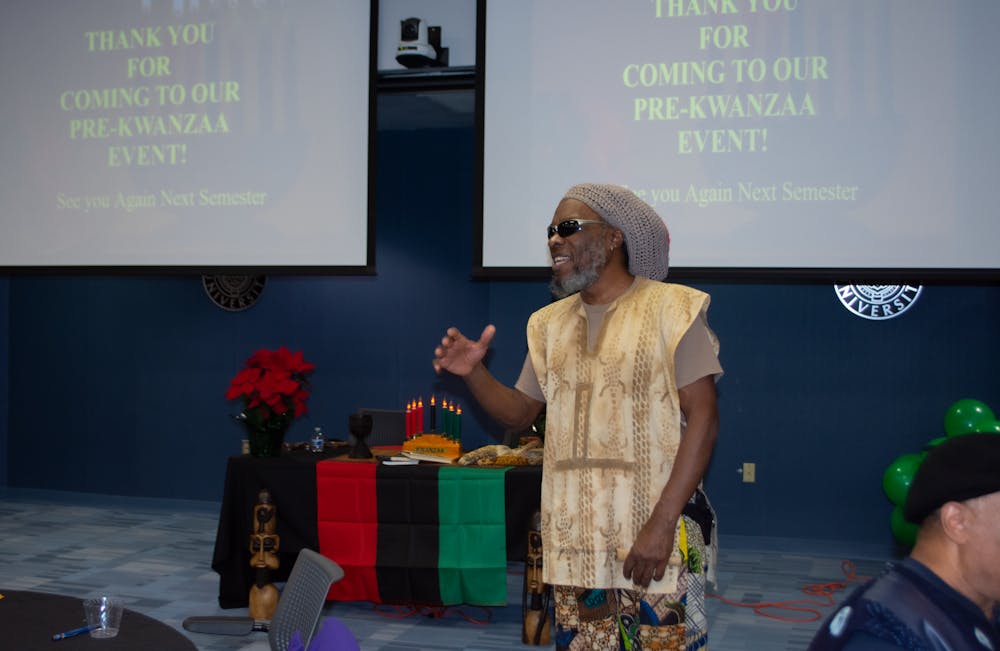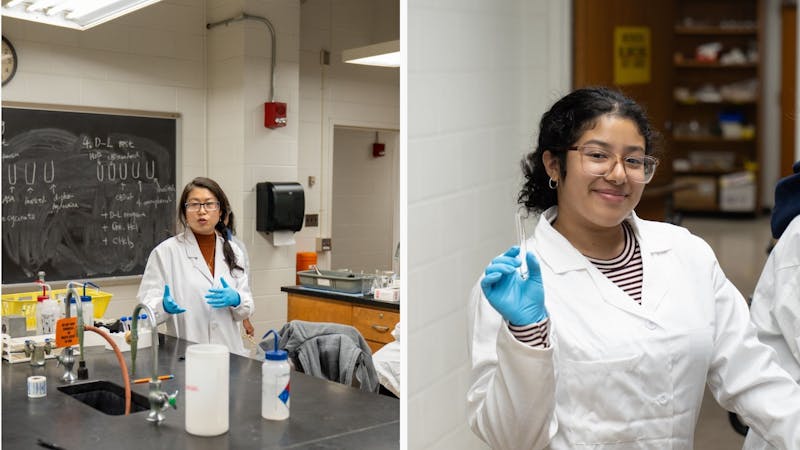Kwanzaa is a celebration of culture, tradition and community. Dr. Maulana Karenga created Kwanzaa in 1966 to uplift and celebrate Black Americans. In the midst of racial turbulance, Karenga wanted to create a holiday that reaffirmed the excellence of the African American community while informing them about their heritage and the contributions of their ancestors.
This holiday begins on Monday, December 26 and ends on Sunday, January 1. Each of the seven days of Kwanzaa is dedicated to a specific principle. The principles are called the Nguzo Saba and consist of the following:
- Umoja (Unity)
- Kujichagulia (Self-Determination)
- Ujima (Collective Work and Responsibility)
- Ujamaa (Cooperative Economics)
- Nia (Purpose)
- Kuumba (Creativity)
- Imani (Faith)
Kwanzaa gained its name from Swahili, the most widely spoken African language. According to the National Museum of African American History and Culture, Kwanzaa derives from the phrase “matunda ya kwanza” or “first fruits." This phrase is associated with harvest celebrations commonly found throughout African cultures and in past practices.
Many are familiar with the structure that holds the tall black, red, and green candles during Kwanzaa. This structure is called the kinara. On each of the seven nights, a new candle earns its glow, and it begins with lighting the Umoja, the black candle in the center. The red candle next to Umoja is lit the second day and the green candle the following. The candles continue to alternate until day seven, where all of them will be burning in unison.
Alongside the kinara, there are other vital factors of Kwanzaa including:
The Kikombe (Unity cup)
(Mkeka) Placemat
Mazao (crops)
Muhindi (corn)
Zawadi (gifts)
To learn more about the meaning behind these items, students can read The Scholastic page. Students can also learn more about Kwanzaa at Kean, where the community has shown appreaction for the holdiay through events and volunteer opportunities.
Kean’s Pan-African Student Union recently led an event in collaboration with Jumpstart. On Friday, December 2, the Kean community volunteered at The Gateway Family YMCA in Elizabeth, New Jersey. There, they taught children about Kwanzaa and its traditions.
Continuing the festivities, the Office of Africana Studies and the Office of Diversity, Equity, and Inclusion sponsored the 2022 Pre-Kwanzaa Celebration on Thursday, December 8th in the Miron Student Center. There was a musical performance, food, and a student poetry showcase.
Kwanzaa is celebrated by millions of people and is a time where people reflect and appreciate the past. It’s important to remember that Kwanzaa is a cultural holiday, meaning that many people choose to celebrate Kwanzaa in addition to religious holidays.
When interacting with others, students can try saying, “habari gani?" This Swahili phrase translates to “what is the news.” It is a common greeting amongst Kwanzaa practitioners and a joyous way to greet anyone during the holiday season.
Have a Joyous Kwanzaa, Cougars!






